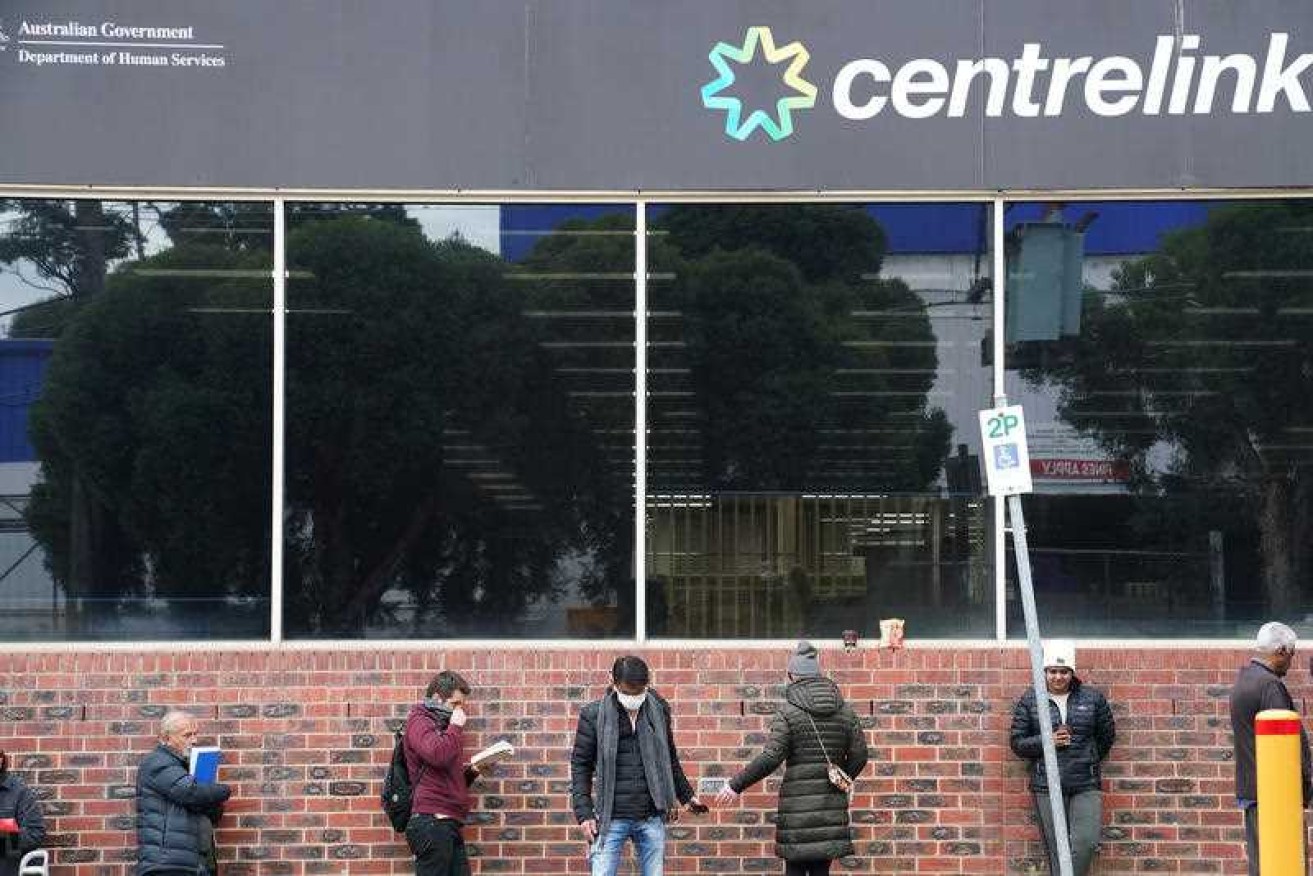Robodebt victims told to borrow to pay

Some Robodebt scheme victims were so traumatised they refused in future to engage with Centrelink. Photo: AAP
Robodebt victims were told to borrow money or use their credit cards to pay their debts with Centrelink staff refusing to help with inquiries, the royal commission into the botched scheme has been told.
Others were so traumatised by their experience with Centrelink that they refused in future to engage with the organisation, even if they were fully entitled to payments.
At a commission hearing on Friday, a series of case studies were related to Commissioner Catherine Holmes.
In one case a young woman was hit with a $12,000 debt but when she went into a Centrelink office with her records she was told they couldn’t help and she should just pay up.
She went to ‘pay-day lender and borrowed money’
“They suggested she borrow the money so she went to a pay-day lender and borrowed the money,” Catherine Eagle, principal solicitor at Perth’s Welfare Rights and Advocacy Service said.
Ms Eagle said the woman didn’t seek any advice at the time but became “terrified” when money started turning up in her account years later as a result of class action payments over the failed debt program.
At that stage, she was worried she would be hit with another debt as a result of the money she was receiving.
In another case, a woman who worked while studying took two years fighting a $14,300 debt and after an exhaustive process to find multiple payslips was simply told her debt was reduced to $9300 without any explanation.
Victim’s lack of trust in Centrelink
NSW Welfare Rights Centre Executive Director Katherine Boyle said the woman’s case was plagued with delays with Centrelink, at one stage, changing her debt “over the phone” before calling back and telling her that was an error.
“That really undermined my client’s confidence in the integrity of the system,” Ms Boyle said.
After her case was finalised and when the COVID-19 pandemic hit the woman was fearful of losing her job but refused to apply for help from Centrelink because of a lack of trust and fearful of being hit with another debt.
“So someone who was potentially entitled to income support had so little trust in the system, so little trust in Centrelink that they did not want to engage,” Ms Boyle said.
“I felt really sad for her because, in her mind, she felt betrayed by the whole process.”
Robodebt sought to recover $1.2b
The robodebt scheme was introduced by the former Coalition government in 2015 and sought to recover $1.2 billion over four years from more than 860,000 welfare recipients but ended up falsely accusing many of owing money.
Hundreds of thousands of Australians were sent debt notices which recovered more than $750 million before the scheme was halted in 2020.
The program changed the system of determining a person’s entitlements by relying primarily on information obtained directly from the Australian Taxation Office to automatically calculate a debt, rather than from the client or other sources.
The change allowed for a huge jump in the number of cases that could be examined from something like 20,000 a year to 20,000 a week.
-AAP








